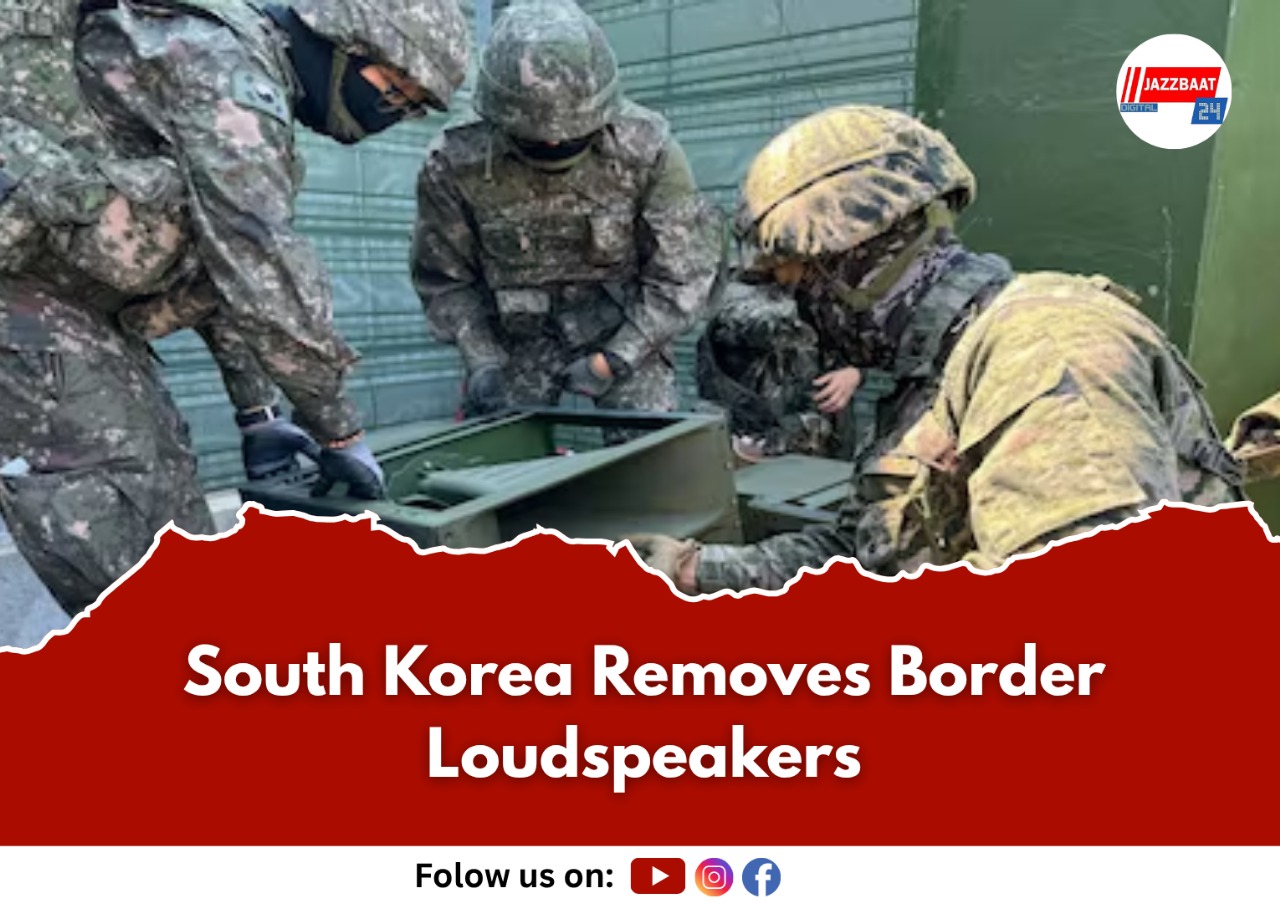
Seoul begins removing propaganda speakers as new liberal government seeks diplomatic reset with Pyongyang
South Korea's military began dismantling propaganda loudspeakers along its heavily fortified border with North Korea on Monday, marking the latest conciliatory move by President Lee Jae-myung's administration to reduce tensions on the Korean Peninsula.
The Defense Ministry confirmed that all speakers broadcasting anti-North Korean messages would be removed by the end of the week, describing the action as a "practical measure" aimed at easing tensions without compromising military readiness.
The loudspeakers, which had blasted a mix of propaganda messages and K-pop songs across the Demilitarized Zone, were silenced in June shortly after Lee took office. The physical removal represents a further step in the liberal president's diplomatic outreach to Pyongyang.
The speaker system was reactivated in June 2024 by Lee's conservative predecessor, Yoon Suk-yeol, in retaliation for North Korea's campaign of flying trash-filled balloons southward. The broadcasts were specifically designed to irritate North Korean leadership, featuring content that directly challenged Kim Jong Un's authoritarian rule.
North Korea has historically shown extreme sensitivity to external criticism, particularly regarding its dynastic leadership structure. The regime has intensified efforts to eliminate South Korean cultural influence among its population, making the K-pop broadcasts particularly provocative.
Lee Jae-myung, who assumed the presidency in June after winning an early election following Yoon's impeachment over a failed martial law declaration, has pledged to rebuild trust with North Korea. The loudspeaker removal follows his administration's halt to the broadcasts as part of broader efforts to revive stalled inter-Korean dialogue.
Defense Ministry spokesperson Lee Kyung-ho emphasized that the dismantling does not affect South Korea's military preparedness, though he declined to specify how the equipment would be stored or whether it could be quickly redeployed if tensions escalate.
Despite Seoul's conciliatory gestures, North Korea has shown little interest in reciprocating. Kim Yo Jong, the influential sister of North Korean leader Kim Jong Un, rebuffed the South Korean overtures last week, criticizing Seoul's continued alliance with the United States.
Her comments suggested that North Korea, currently focused on expanding cooperation with Russia amid the Ukraine conflict feels no urgency to resume diplomacy with either Seoul or Washington.
The speaker removal comes amid heightened regional tensions, with North Korea advancing its nuclear capabilities while South Korea strengthens military cooperation with the United States and Japan. The two Koreas remain technically at war, as the 1950-53 Korean War ended in an armistice rather than a peace treaty.
Previous diplomatic efforts collapsed in 2019 when high-stakes nuclear negotiations between Kim Jong Un and then-U.S. President Donald Trump broke down over sanctions relief.
Lee's administration faces the challenge of pursuing engagement with a neighbor that has consistently rejected dialogue while maintaining strong deterrence capabilities against potential threats. The loudspeaker dismantling represents a calculated risk that small confidence-building measures might eventually create space for more substantial diplomatic progress.
Whether this latest gesture will break the current diplomatic deadlock remains uncertain, but it signals Seoul's commitment to exploring every avenue for reducing tensions on one of the world's most militarized borders.